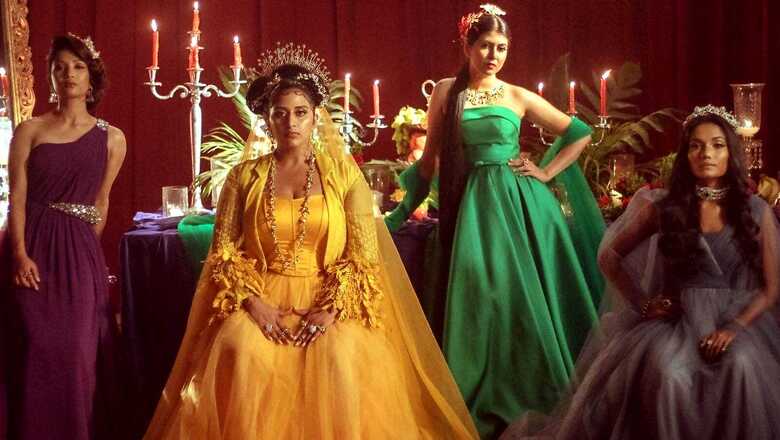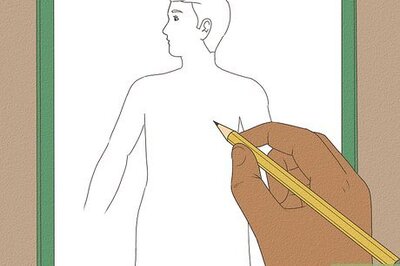
views
Svetha Yallapragada Rao, professionally known as Raja Kumari, is one the most prominent Indian-American names in international hip-hop today. She’s been using her empowered voice to promote female talents in the rap scene in India, having also appeared in Gully Boy, a rare Indian film on Indian hip-hop. Her most recent collaboration has been with MCs Dee MC, SIRI and Meba Ofilia on a song called Rani Cypher, which celebrates the potent voices of a new generation of women who dare to dismantle deeply ingrained stereotypes and forge a path for themselves.
Raja Kumari and the three other MCs say the social perception towards women in Indian hip hop is changing. The City Slums hitmaker also admits India is missing the infrastructure for songwriters and musicians that the US has. Excerpts from an interview:
How is the collaboration on Rani Cypher a step towards empowering women in the music industry?
Raja Kumari: I’ve always had it in my mind to create a platform to encourage more females in the industry. And I was so thankful that Absolut trusted me to create this project from beginning to end. Allowing me to really run this creatively encourages more women to speak up about what they want to do and to be clear and to ask for it. So, it just came about out of a dream to see more females in hip hop. I hope that this inspires more and more women to be in music.
Your screen presence is always powerful. Where do you draw strength from for that confidence?
RK: When I’m on screen, I understand that that’s that moment, it’s an opportunity to really get across my feelings, so I try not to get in my own way. I try to just be present. And I think (being trained) in Indian classical dance, always playing roles and characters, I’m able to just snap into it and just kind of draw that energy and I’m glad that it translates across the camera, across the lens, but I’m definitely drawing my confidence from myself, never want to forget that I’m a queen, and I kind of wrote the chorus to remind myself of that.
Do you think you have an advantage over female MCs in India, because you started working in the US?
RK: I definitely think that the United States has an infrastructure for songwriters and musicians. Based out of LA, before I was ever a signed songwriter in 2012, I had the opportunity to attend different songwriting sessions and learn from my peers. I think that culture of coming together is missing in India and that is something that I would like to make popular in India and bring in the camp culture, like writing camps and songwriting forums and things like that.
I believe, growing up in the United States and in Los Angeles, I had immense exposure by just being able to just be in the room with the veterans of the industry. I was in the mecca of pop music, so I was able to work with Timberland and be in the room with Dr. Dre and learn from all these major labels, global artists. So, I think, a lot of times whenever I think about my music, I’m viewing it from a global perspective and I would like to bridge the gap between East and West with the music. And I am appreciative and grateful for the experiences I have had, but I don’t want to just have them just globally. That is why I want to come back to India and partner with Absolut to create platforms like this so that people can witness and hear more about these incredible artists that maybe did not have those same opportunities but deserve them. I’m really committed in seeing more females get more opportunities, like I was able to have, and I hope to be able to create those in India.
Ever since you entered the Indian rap scene, has social perception of women in hip hop changed?
Raja Kumari: Yes. I feel like when I first entered, I did not even see any females in the crowd, that was very rare, very few. And I think over the span of last five years, you have seen so many female MCs get opportunities to work with brands, you have seen more female MCs performing, but most importantly I think you’ve seen more female fans, more women that were relating with the music, and coming out to the show. So, I think, hip hop is becoming a safe space for women, and I’m really happy about that progress.
Meba Ofilia: There is no objective answer to this but as far as I know, over the past few years, the inclusion of women in hip hop has brought a diversity in the art form. That being said, we still have to prove ourselves time and again, and there is still a sense of underestimation but I’m hopeful because more and more women have joined the rap scene.
SIRI: Well, humans are so complex that we can’t completely change some things so quickly, but I think I’ve definitely left a dent in terms of how people perceive women in a certain way, and work towards changing that. It has made a huge difference and has inspired more women to do the same.
Read all the Latest News, Breaking News and Coronavirus News here.

















Comments
0 comment